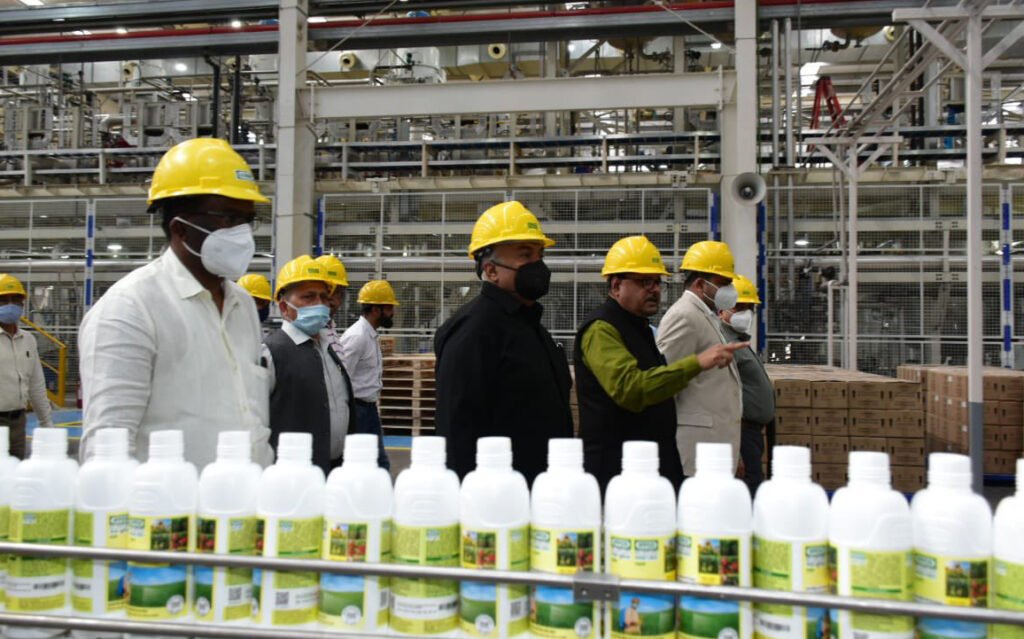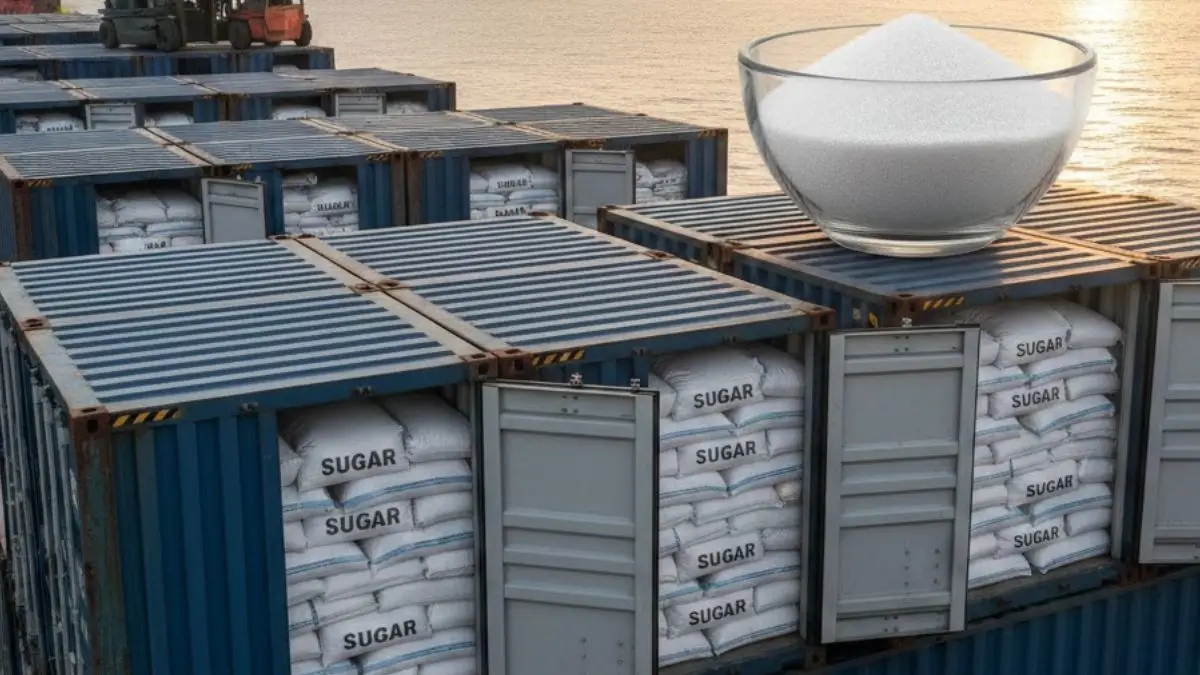Nano Urea Plant : Amit Shah Lays Foundation Stone for India’s Fifth Nano Urea Plant in Deoghar
Union Home Minister Amit Shah laid the foundation stone for India’s fifth Nano Urea plant at the Indian Farmers Fertilizer Cooperative Limited (IFFCO) in Deoghar, Jharkhand. Nano Urea, a new technology that reduces the use of traditional urea fertilizer by up to 50%, was developed by the Indian Council of Agricultural Research (ICAR) and IFFCO. The plant is expected to produce 1.25 lakh metric tonnes of Nano Urea annually.

Why this News is Important
Boosting Agricultural Production and Farmers’ Income
Agriculture is the backbone of the Indian economy, and the government has been taking various steps to boost agricultural production and farmers’ income. The use of Nano Urea, which is more efficient and eco-friendly than traditional urea, can help increase crop yield, reduce soil degradation, and decrease the negative impact on the environment. Additionally, Nano Urea is cost-effective, which can lead to an increase in farmers’ income.
Reducing Dependence on Imported Fertilizers
India is heavily dependent on imported fertilizers to meet the demand for its agricultural sector. The production of Nano Urea in India will reduce the country’s dependence on imported fertilizers and make the country self-sufficient in meeting the demand for urea.
Historical Context
The use of traditional urea fertilizer has been prevalent in India for many years. However, the excessive use of urea has led to soil degradation, water pollution, and a decline in crop yields. Additionally, the cost of traditional urea has been increasing over the years, which has put a burden on farmers’ income. To address these issues, the Indian Council of Agricultural Research (ICAR) and IFFCO developed Nano Urea, a more efficient and eco-friendly fertilizer.
Key Takeaways from “Amit Shah Lays Foundation Stone for India’s Fifth Nano Urea Plant in Deoghar”
| Sr. No. | Key Takeaways |
|---|---|
| 1 | The foundation stone for India’s fifth Nano Urea plant is laid. |
| 2 | The plant is expected to produce 1.25 lakh metric tonnes annually. |
| 3 | Nano Urea technology reduces the use of traditional urea by up to 50%. |
| 4 | Nano Urea increases crop yield, reduces soil degradation, and decreases the negative impact on the environment. |
| 5 | The production of Nano Urea in India will reduce the country’s dependence on imported fertilizers and make the country self-sufficient. |
In conclusion, the establishment of India’s fifth Nano Urea plant in Deoghar is a significant step towards promoting sustainable agriculture and increasing farmers’ income. The use of Nano Urea technology can lead to a reduction in the use of traditional urea, increase crop yield, and reduce soil degradation. The production of Nano Urea in India will also make the country self-sufficient and reduce dependence on imported fertilizers.
Important FAQs for Students from this News
1. What is Nano Urea?
Nano Urea is a new technology developed by the Indian Council of Agricultural Research (ICAR) and IFFCO. It reduces the use of traditional urea fertilizer by up to 50% and is more efficient, eco-friendly, and cost-effective.
2. What is the significance of Nano Urea?
Nano Urea can increase crop yield, reduce soil degradation, and decrease the negative impact on the environment. It can also help in reducing India’s dependence on imported fertilizers and making the country self-sufficient in meeting the demand for urea.
3. Who laid the foundation stone for India’s fifth Nano Urea plant?
Union Home Minister Amit Shah laid the foundation stone for India’s fifth Nano Urea plant at the Indian Farmers Fertilizer Cooperative Limited (IFFCO) in Deoghar, Jharkhand.
4. How much Nano Urea is expected to be produced annually by the Deoghar plant?
The Deoghar plant is expected to produce 1.25 lakh metric tonnes of Nano Urea annually.
5. What are the advantages of Nano Urea for farmers?
Nano Urea is more efficient and cost-effective than traditional urea, which can increase farmers’ income. It can also reduce the negative impact on the environment and increase crop yield.
Some Important Current Affairs Links

















